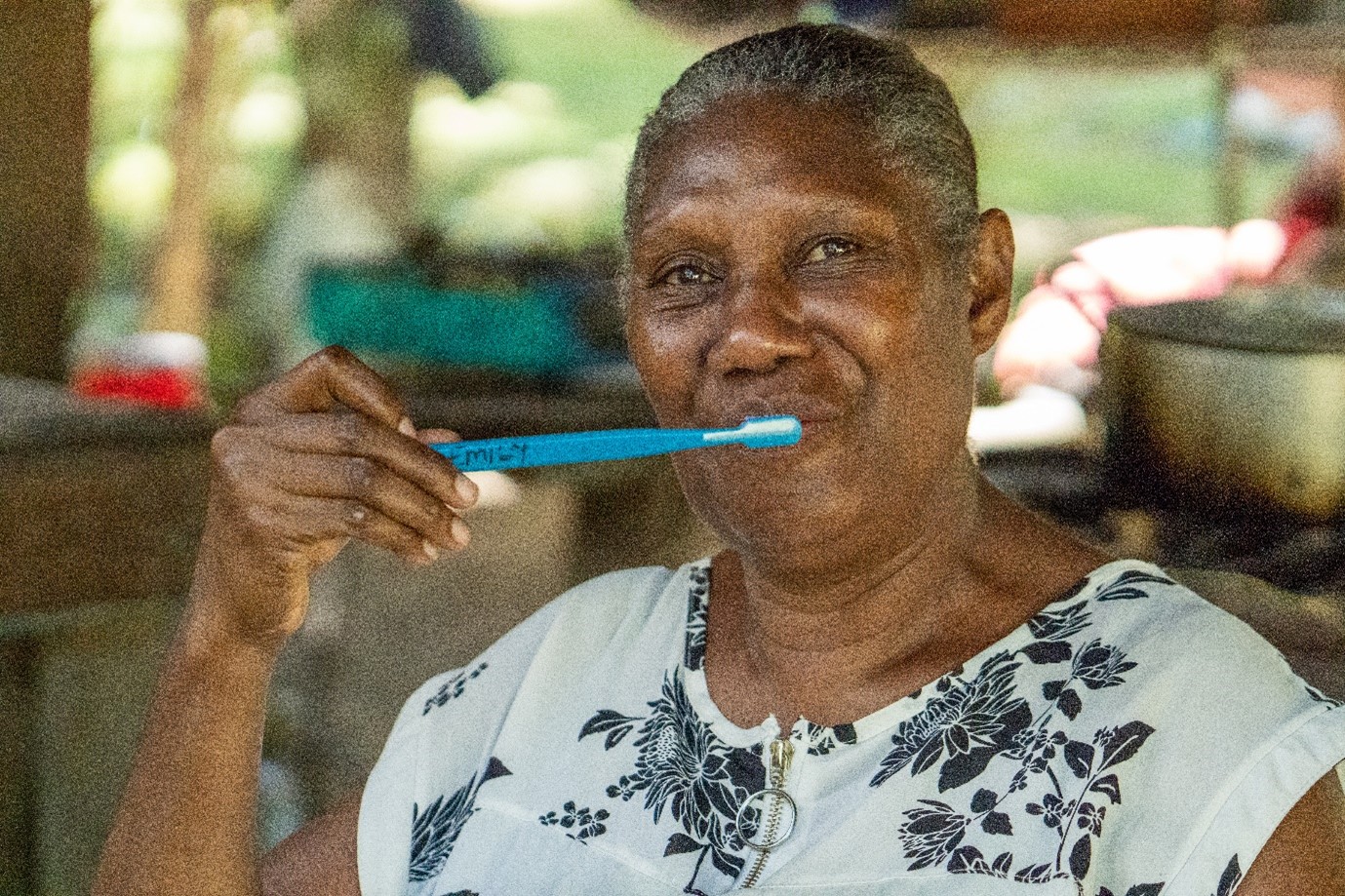
- Report -

Ukraine
Making every school a health-promoting school: global standards and indicators
author




- Improved access to quality essential health services irrespective of gender, age or disability status
- Countries enabled to provide high-quality, people-centred health services, based on primary health care strategies and comprehensive essential service packages
- Supportive and empowering societies through addressing health risk factors
Improving Oral Health and wellbeing in Vanuatu through the community promotion of toothbrushing with fluoride toothpaste and healthier food choices
Vanuatu’s 2017 National Oral Health Survey revealed that 5 to 7 year old children had a high prevalence of tooth decay (70 percent), bleeding gums (77 percent), and toothache (10 percent) in their primary teeth which had a negative impact on their physical, mental, and social wellbeing. 40 percent of the children rarely or never brushed their teeth so, in response to excessive sugar consumption and inadequate tooth brushing habits, WHO Vanuatu supported the Government to implement the ‘Healthy Tooth School Programme’, known as the Gudfala Tut Skul Program (GTSP). The 20-week trial of the supervised tooth brushing programme in selected kindergartens and primary schools resulted in significantly reduced plaque scores and improved oral habits in the students and their families. The success of the programme has seen it expand to 51 kindergartens and primary schools in 3 provinces, benefiting over 5 000 children and an estimated 25 000 family members. GTSP aims to target rural areas to reach all 5 to 7 year old children in Vanuatu by 2023.
Key WHO Contributions
Provision of technical expertise for the development of Vanuatu’s National Oral Health Survey and National Oral Health Policy
Bringing global evidence and technical expertise to the design, implementation, and evaluation of the Healthy Tooth School Programme
Funding through successful advocacy with international donors
Deploying a programme co-ordinator to scale the programme to the national level.
How did Vanuatu, with the support of the WHO Secretariat, achieve this?
Vanuatu took an important step towards improving the oral health of its citizens with the National Oral Health Survey, conducted using WHO’s methodology, and its first National Oral Health Policy (2019-2023). The survey provided information on the oral health status of the population, while the policy outlines strategies to reduce the burden of oral diseases with a focus on prevention through community participation and multisectoral collaboration [1].
In 2019, the Vanuatu Government launched GTSP in collaboration with WHO and other local partners. This community-based programme aims to ensure equitable improvements in oral hygiene via school-based activities and community outreach. WHO Vanuatu coordinated with the WHO Regional Office and WHO headquarters to bring global evidence and technical and financial support to the programme.

Preschool teacher Emily of Mele Maat, Vanuatu teaches children how to properly brush teeth with fluoride toothpaste, enabling them to develop life-long healthy habits.
Photo credit: WHO/Ginny Stein.
GTSP is designed to improve the oral hygiene of children attending kindergarten and primary schools. GTSP offers toothbrushing kits, which include two toothbrushes, storage containers for the classroom and for home, and fluoride toothpaste produced locally by a women’s association. The toothpaste is made with coconut oil and calcium carbonate and has an appropriate fluoride concentration and is stored in reusable containers. Teachers are trained to dispense a small amount of toothpaste, supervise brushing, and store the toothbrushes safely. To further encourage the practice of brushing teeth daily with fluoride toothpaste, record charts and stickers are provided to track children’s daily brushing at school and at home.
"The Gudfala Tut Skul Program takes advantage of the fact that young children are more open to learning and adapting new behaviours. By educating them on proper brushing and good nutrition, we can help ensure a healthier future for generations to come"
- Dr Jenny Stephens, Acting Director, Department of Public Health, Ministry of Health
The programme emphasizes the importance of brushing with fluoride toothpaste for two minutes, and encourages good nutrition and hydration habits. Children are provided with balanced snacks and drinks to not only promote good oral health, but also reduce the risk of obesity and other noncommunicable diseases. The programme also teaches children to make healthier food choices, limiting their intake of free sugars such as sweets and biscuits, and encouraging them to drink more water and reduce their consumption of sugar-sweetened beverages. These practices help to maintain good oral health, while also promoting overall wellbeing.
“Healthy Tooth School is part of the concept of healthy promoting schools. It is an investment for the future to reduce the disease burden of people across the life course by introducing healthy behaviours at an early stage of life.”
- Dr Eunyoung Ko, Country Liaison Officer for WHO Vanuatu
WHO provided technical support to collect data at baseline, and after the pilot. The data showed an improvement in dental hygiene and oral hygiene habits. Due to its success GTSP is being integrated into the Government of Vanuatu’s Health Promoting Schools initiative, which includes a School Health policy that includes oral health and teeth brushing. WHO funded a programme coordinator to scale-up the project into the national level while supporting the Ministry of Health (MOH) to successfully fundraise from other international donors. The project is slowly expanding as awareness of the project increases and, to further increase its impact, the Government of Vanutu’s Integrated Health Unit has incorporated eye, ear, nose, and throat screenings.
References
- Improved access to quality essential health services irrespective of gender, age or disability status
- Countries enabled to provide high-quality, people-centred health services, based on primary health care strategies and comprehensive essential service packages
